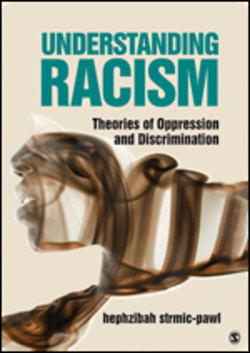Читать книгу Understanding Racism - Hephzibah Strmic-Pawl - Страница 54
На сайте Литреса книга снята с продажи.
Confronting and Accepting White Privilege
ОглавлениеWhen presented with White privilege, Whites often become hesitant to accept the information or develop White guilt. In the first regard, a primary reason Whites express hesitance is because they believe in the myth of meritocracy—that only those who work hard are appropriately rewarded—but White privilege exposes the falsity of this ideology. If Whites accept that they were given some systematic benefits in their life because of Whiteness, they must also believe that their life’s accomplishments were aided by White privilege. Acceptance of this fact often leads to conflict with one’s identity as White.
In addition to the myth of meritocracy, Amico outlines seven additional reasons why Whites generally have a hard time accepting the existence of White privilege: (1) the master narrative of U.S. history, (2) the myth of race, (3) residential segregation, (4) individualism, (5) obliviousness, (6) racial identity development and cultural competencies, and (7) an individual’s own racism. Amico says that these reasons can be compounded by four emotions: (1) a feeling of being threatened; (2) family loyalty; (3) fear, shame, and guilt; and (4) feelings of hopelessness and powerlessness.26 There is a series of reasons and emotions, often overlapping and intersecting, that hinder Whites’ recognition of their privilege, which is only evidence of the strength of privilege to obscure the truth.
When Whites do accept White privilege and realize that they are the recipients, a second outcome of confronting White privilege is White guilt. Whites feel guilt for the unfair advantages given to them and recognize that their opportunities and accomplishments are, at least in part, due to the unearned and unmerited bias afforded to those who are seen as White. A step further in the understanding of White privilege reveals that the unearned opportunities given to a White person also means that unmerited disadvantages were given to a person of color. When Whites come to grips with the years, decades, and centuries of benefits given to Whites and the corollary discrimination faced by people of color, guilt arises from being a member of the “White race,” often because there is no clear way to rid oneself of these privileges.27 However, as discussed later, the objective of White privilege theory is not to encourage Whites to feel guilty but to have this revelation lead to combating racism. Furthermore, White privilege theory posits that Whites can experience personal benefits from confronting their privilege. White privilege can keep Whites from having authentic relationships with people of color, can keep Whites ignorant about history, and can keep them from recognizing how they may be perpetuating a racist system. Therefore, confronting one’s White privilege can lead to empowerment, confidence, healing, and community building.
